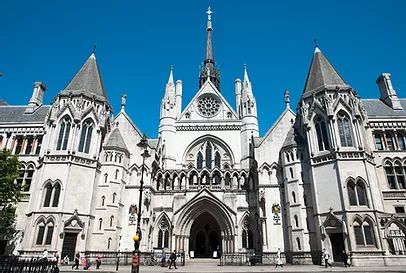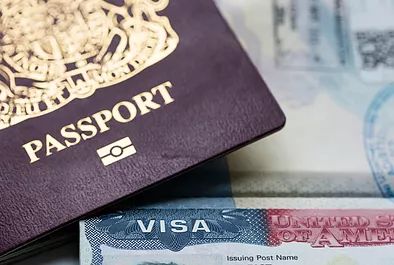
Sole Representative switching to Tier 2 General
Case Study 1
Our immigration team was initially instructed to provide document checking service in relation to an extension application under the Sole Representative visa route.
Having conducted a thorough review of the application bundle, it was ascertained that the client was not eligible to apply for an extension for the reason that one of the immigration requirements would not be met. Our ultimate goal was not just only to avoid the refusal, but also to not lose the time spent under the Sole Representative visa towards an ILR. Therefore, our advice was to switch to the Tier 2 General visa category.
Our client was able to find a job with an A-rated licensed sponsor within a matter of days. Thankfully, our client was identified as an ideal candidate to fill the position on offer, whereby the company was able to assign an unrestricted COS certificate.
Our client’s Tier 2 General application was submitted to the UKVI using Priority Service on the last day of the validity of our client’s visa. We received an approval from the Home Office 14 days later.

From UK Immigration Rules to EEA Regulations 2016
Case Study 2
Our immigration team was instructed to provide full representation service in relation to a Tier 1 Investor extension application. Having reviewed quarterly portfolio reports, we discovered that the balance on our client’s portfolio has dropped lower than the minimum threshold for at least two consecutive quarters at some point within the initial period of leave. With only weeks to go before the visa was due to expire, we decided to switch to European Regulations 2016. Our advice was based on the fact that our client was also a direct family member of an EU National who was exercising Treaty Rights in the UK. Our client’s Residence Card application was eventually approved within 2 months from the submission date.

Navigating the complexities of UK Spouse Visa - A Russian Client's Success Story
Case Study 3
In a recent case, we had the opportunity to represent a Russian client applying for a UK Spouse Visa.
This situation brought to light the complexities that arise when interpreting the Home Office’s requirements.
Our client encountered unique circumstances as they had gotten married at the Russian Embassy in London due to personal reasons. However, under the UK Marriages Act 1994, no diplomatic premises in the UK were approved for conducting marriages or civil partnerships, posing a significant challenge.
To address this challenge, we confirmed the marriage registration and solemnization in Russia, following the law of the location where it occurred. In Russia, all marriages processed at Russian Consulates abroad are officially registered with the Civil Registry of the Russian Federation, gaining recognition by the Government of the Russian Federation.
We are pleased to share that our diligent presentation of evidence and adherence to legal principles paid off.
The Home Office concurred with our position, recognizing that the marriage had indeed been registered in Russia and not in the UK. Consequently, our client’s application for the UK Spouse visa was approved successfully!

Tier 1 (Entrepreneur) - successful Administrative Review
Case Study 4
The Home Office had a tendency to refuse any prospective entrepreneurs, who, in their view, do not come across as genuine, in particular, following an in-person interview with an Entry Clearance Officer.
One of our clients was not an exemption. Our Immigration Team was approached by an individual, whose Tier 1 (Entrepreneur) application was refused for the same reason.
Following a thorough review of the client’s business plan, our advice was to pursue an Administrative Review, as the client’s business plan and business idea was, in fact, genuine and credible.
Having argued every single point in the refusal letter, and following 3 months of waiting and liaising with the Decision Making team of the Home Office, the decision to refuse our client’s Tier 1 (Entrepreneur) visa application was overturned.

Update on a recent immigration case handled by Chan Neill Solicitors
Case Study 5
The applicant’s work visa and their spouse’s dependent visa were nearing expiration. The applicant faced a time-sensitive challenge as their visa was about to expire in less than a week, and their company couldn’t provide a Certificate of Sponsorship (COS) for the renewal before the expiration date.
Considering the urgency and the applicant’s desire to avoid a visa break, we made a strategic decision to wait until the day both visas expired before submitting the application form. Since the employer hadn’t changed, we used the same COS information from the applicant’s first visa on the application form. However, the company provided a new COS two days later, which we promptly uploaded after notifying the solicitors of the discrepancy.
The primary applicant utilised the expedited service, and within five working days of submitting the required documents, they received notification of the Health and Immigration Surcharge (IHS) fee back payment. After two weeks, the renewal application of the primary applicant was approved. Subsequently, the subsidiary applicant also received notice of the HIS fee and was granted the visa on 27th April.
In cases where primary applicants and their dependents apply for visas together, sometimes the IHSfee may not be complete until the visa has been approved, especially for dependents. If your payment does not match the IHS fee initially, there’s no need to worry. The Immigration Department will notify you of the correct fee once all final application documents have been submitted.

You can enroll in school even if your student visa has not yet been approved?
Case Study 6
An applicant came to the UK for secondary school and studied in a public school. After completing their A-levels, they were offered a place at a local university in the UK. As a result, they needed to convert their Child Student Visa to a Student Visa.
The application was made less than a month before the start of the school year, providing a tight preparation schedule.
We gathered all the necessary documents and completed the application form submission and accompanying documentation. Additionally, we provided valuable guidance to the applicant, recommending using the general expedited service to obtain the new visa before the start of the upcoming school year.
August and September are the busiest time for UK student visa applications. Due to the high volume of applications, there may be a backlog of cases leading to a slower processing time. Even applicants that have used the expedited service may also experience delays.
The applicant had waited 20 days and the school term had started. We were able to assist the applicant by issuing a formal complaint to the Home Office, submitting this complaint to the school which finally persuaded to the school to allow the applicant to begin their school term whilst the application was still in progress.

Returning to UK Studies After suspension - Reapply student visa
Case Study 7
The applicant came to the UK to study for an undergraduate degree in 2020, but unfortunately two years later, he suspended his studies due to health problems and returned to China for treatment. The applicant is preparing to apply for a new student visa to return to the UK to resume studies in January 2023. The school issued the CAS to the applicant who needs to apply for a visa abroad. However, due to a misunderstanding, the applicant returned to the UK with the original student visa BRP. Since the applicant could not submit a new visa application within the UK and had also missed the school start date specified by CAS, therefore could not use this CAS to get a new student visa.
When the applicant suspended his study and returned to China for health problems, the school withdrew the guarantee of the original student visa. According to regulations, the applicant can no longer enter the UK with the BRP of the original student visa. Using the expired BRP to enter the UK will aggravate the level of future visa application complexity and have the consequences of illegal stay. As a result of the applicant’s wrongful entry, the visa application was delayed, and the CAS became invalid and unusable.
Chan Neill Solicitors compiled the applicant’s medical treatment records in China and the UK, explained the necessity of the applicant’s suspension of studies, and proved that the applicant’s current physical condition allows him to resume his studies.
At the same time, in the lawyer’s letter we explained that the applicant used an invalid BRP card to enter the country due to his unfamiliarity with immigration regulations and did not intentionally violate the rules. After communicating with the school, applicant’s enrolment was postponed to February 2024, allowing the applicant to reapply.
After receiving the new CAS document issued by the school for the applicant, we quickly organised the necessary materials and submitted the application in mid-December, using the expedited service. After the applicant provided biometric information on 15th December , he received the approval documents on the 18th, taking only three days! The applicant has now successfully entered the UK with a new student visa to complete his studies.
Studying abroad may be interrupted for various reasons, either voluntarily or involuntarily. After the school agrees to suspend studies, it will usually notify the Immigration office to suspend the student’s visa sponsorship. If the student resumes their studies later, they should reapply for a student visa from abroad before returning to the UK. Also, when applying for a new student visa, it is best to provide a reasonable explanation for the previous leave of absence.

Delayed COS Document and Expired PSW Visa: Securing a New Work Visa
Case Study 8
The applicant entered the employer’s company with a PSW graduate visa, which was set to expire in March of this year. In January, the employer contacted Chan Neill Solicitors wishing to sponsor a work visa for the applicant.
A Certificate of Sponsorship (COS) is a necessary document for a work visa application. However, the applicant had not received the COS by the time their original visa expired, putting them at risk of overstaying. Additionally, due to the transition between old and new work visa policies and the limited daily supply of expedited COS services meant that the issuance speed from the immigration office was slow.
The COS quota application was submitted on January 19, and daily expedited service requests were sent, but none were successful until mid-April.
To avoid the issue of overstaying, we proactively contacted the applicant and the employer to prepare the application form content. The form was submitted on the day the visa expired, ensuring that the applicant would not become an illegal resident due to an expired visa, which could affect future permanent residency applications.
After submitting the form, we continued to send expedited service requests every day, and finally succeeded on 16th April. We immediately contacted the company to complete the payment. Since the new work visa policy was already in effect when the COS quota was obtained, we advised the employer to adjust the applicant’s salary accordingly. After confirming the employment details, we issued the COS document the next day and scheduled the applicant’s biometric information collection for 27th April.
In the lawyer’s letter, we explained why the application form was submitted before receiving the COS document and why the COS number in the form differed from the actual COS document. We also confirmed that the applicant’s current employment conditions met the new work visa policy and submitted all relevant application documents.
The applicant used the expedited service for a five-business-day decision but received the approval email on Monday morning, 29th April, just one day after submitting fingerprints on Saturday!
The COS document is one of the most critical components of a work visa application, but many applicants fail to receive it before their original visa expires, affecting the application process and causing overstay issues. The best way to avoid such problems is to consult professionals early for application planning and progress management. However, in cases of uncontrollable factors like this one, applicants can consider submitting the application form to avoid the negative impact of overstaying on future visa renewals and permanent residency applications.





